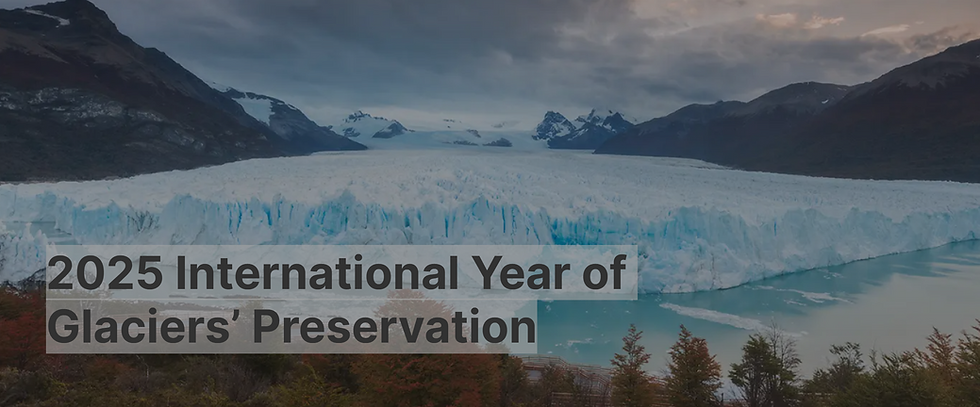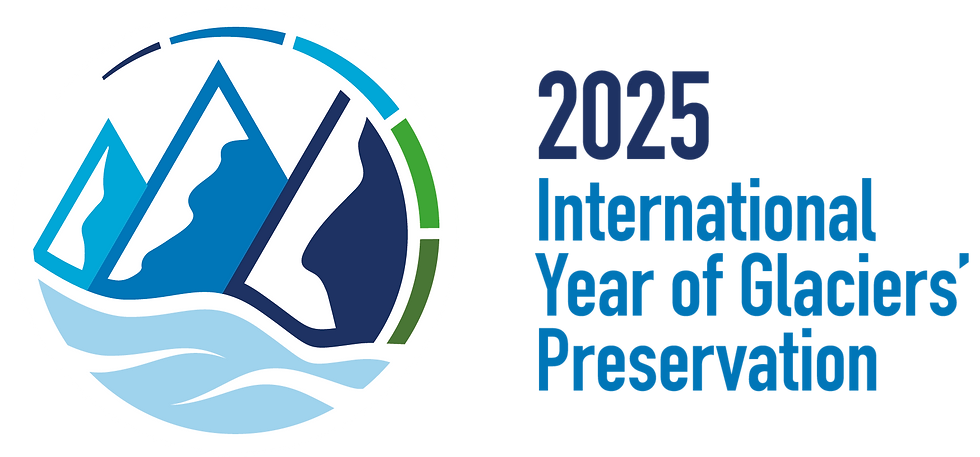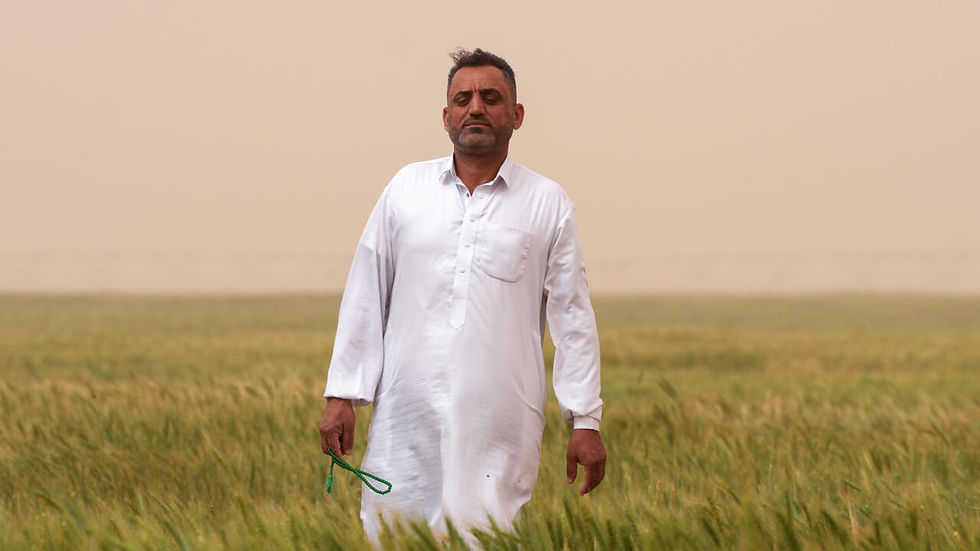2025 International Year of Glaciers’ Preservation
- thierry groell
- Apr 28, 2025
- 2 min read


Background
In December 2022, the UN General Assembly adopted the resolution to declare 2025 as the International Year of Glaciers’ Preservation, accompanied by the proclamation of March 21st of each year as the World Day for Glaciers starting in 2025.
Last update:7 January 2025
The International Year and World Day for Glaciers aim to raise global awareness about the critical role of glaciers, snow and ice in the climate system and the hydrological cycle, and the economic, social and environmental impacts of the impending changes in the Earth’s cryosphere, as well as to share best practices and knowledge in this regard and in addressing issues related to accelerated melting of glaciers and its consequences.
Discover the Resolution
Resolution adopted by the General Assembly on 14 December 2022.
UNESCO and WMO, in collaboration with governments and relevant organizations, are invited to facilitate the implementation of the International Year and World Day as leading agencies. The coordination efforts are supported by an Advisory Board and four Task Forces representing over 75 international organizations and 35 countries.
The Task Forces are driving the implementation of the key activities outlined for the International Year, ensuring that each initiative aligns with the overall objectives and reaches global impact.
The International Year is fully aligned with the priorities of the IXth Phase of the UNESCO Intergovernmental Hydrological Programme and the WMO Strategic Plan 2024-2027.


Comments